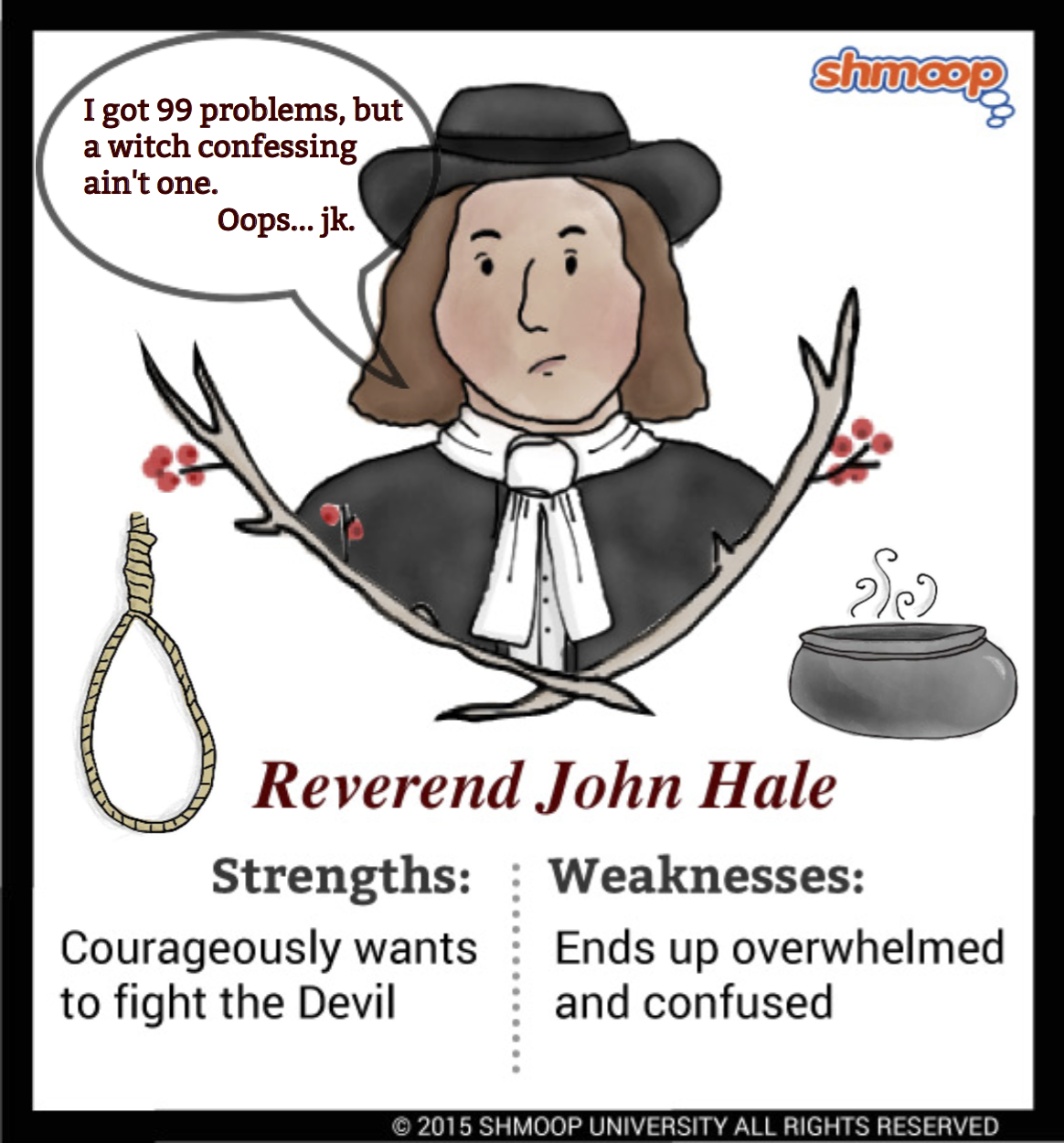Character Analysis

(Click the character infographic to download.)
A Personal Journey That Would Make Ulysses Jealous
Talk about a character arc. Hale starts out with a Van Helsing-esque vendetta (against witches, not vampires) and ends up a broken, cynical man.
With the notable exception of John Proctor, Hale gets our vote for most complex character in The Crucible. He starts off with really good intentions—even if he has a bit of a chip on his shoulder. In Act I, Miller writes of Hale: "His goal is light, goodness, and its preservation." This guy has trained and trained to be the best witch-hunter ever, and he's psyched to finally get a chance to show off his stuff. Though he's probably a little full of himself, his ultimate goal is to valiantly fight the Devil. What could be wrong with that?
Well, a whole lot.
In Act II, we see that Hale's former confidence is slowly eroding. This is demonstrated by the fact that he shows up at the Proctors's house of his own accord. He's there without the court's knowledge, trying to get an idea of who the Proctors are for himself. This independent action is a big hint that he's probably beginning to doubt the validity of his own conclusions. When John Proctor gets convicted in Act III due to Abigail's transparent machinations, Hale's confidence is shattered. He quits the court and storms out in anger.
The transition from overconfidence to total disillusionment is already a big journey, but then Miller takes his character a step further in Act IV. After taking off for some soul-searching, Hale turns up hoping to save some lives. He councils convicted witches to confess so that they won't be hanged. Hale is knowingly counseling people to lie. He's lost all faith in the law, and there's a good chance his faith in God is a bit shaky as well.
Hale's last effort to wash some of the blood off his hands fails. He's not able to convince anyone to confess. When John Proctor marches off to his martyr's death, Hale pleads with Elizabeth to change her husband's mind, screaming,
"What profit him to bleed? Shall the dust praise him? Shall the worms declare his truth?" (IV.207)
Words like these show that Hale has become a completely different man than the one we met at the beginning of the play. The tortured reverend is a great example of the kind of rich, morally ambiguous character for which Miller is famous.
Reverend John Hale Timeline